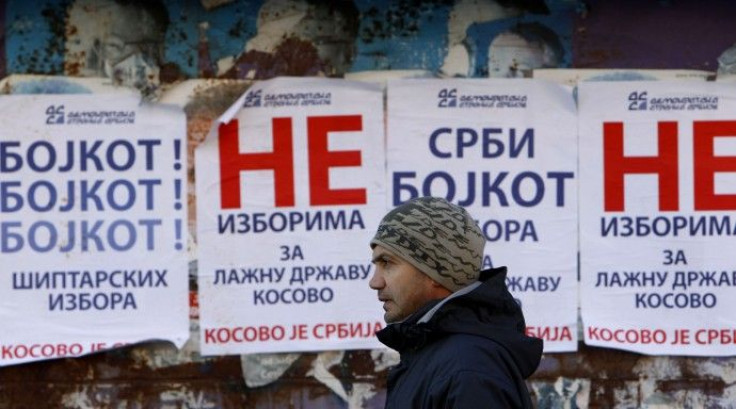Kosovo awaits poll results, most Serbs boycott elections

Caretaker Prime Minister Hashim Thaci's Democratic Party of Kosovo (PDK) is leading in Kosovo's Sunday polls, reports suggest. The results are expected to be declared in the late hours of Sunday. The country is holding its first election since unilaterally declaring independence in 2007 from Serbia. Meanwhile, Serbia and more than 500 International monitors are watching the polls closely. Local media has been reporting of minor incidents of violence in Serb-dominated North Kosovo, especially in the town of Mitrovica posters. Posters on the walls in the town called for a boycott of the elections.
Despite Nine Serb parties running for parliament, several ethnic Serb groups have boycotted the polls fearing that their participation might provide legitimacy to their neighbor which they consider a quasi-independent state.
The elections were announced after the coalition government of Hashim Thaci, failed a vote of no confidence last month. Opposition in Pristina then accused the government of orchestrating its own downfall bringing upon the need of the snap polls. Observers say that the current elections will only give way to a coalition government with no side seen as attaining complete control. The right-wing Democratic League of Kosovo is trailing behind the PDK by a small margin.
More than 1.6 million voters are eligible to vote while 29 political parties taking part in the elections. Over 1,260 candidates are running for 120 parliament seats of which 20 seats are reserved for Serbs and other non-Albanian communities. Around 6,000 policemen along with forces from EULEX and KFOR are in place for security.
As many as 71 countries, mostly European, have recognized it as an independent state since then. Serbia, however, refuses to recognize the statehood, but in September this year had given up its bid to challenge Kosovo's independence at the UN general assembly meeting.
The situation in northern Kosovo over the past few months remained unstable. International observers urged for immediate face-to-face talks between Pristina and Belgrade. Even as Serbia agreed on the need of talks, officials in Kosovo stated that they would prefer to engage in dialogue with Belgrade only after elections. Analysts say that Pristina is trying to attain political stability before entering the dialogue brokered by the European Union. Turkey, had offered to mediate between both sides in peace talks if the country is invited. Being one of the poorest European countries, Kosovo, to a large extent depends on foreign support.
© Copyright IBTimes 2024. All rights reserved.











